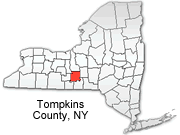Be A Caring Adult
Developmental research shows that having one or more caring adults in a child’s life increases the likelihood that they will flourish, and become productive adults themselves.1 In many cases, these caring adults are the child’s parents, but other relatives, neighbors, friends of parents, teachers, coaches, religious leaders, and others can play this role.
How can you be a caring adult for the young people in your life?
Here are a few examples of ways to show you care -
- Learn the names of the kids in your neighborhood and say “hi” to them by name when you see them.
- Hire teens to do odd jobs at your home. Ask friends or neighbors to suggest teens if you don’t know any.
- Organize a neighborhood block party so everyone gets to know each other.
- Be a mentor in your workplace - or offer a placement for a volunteer student intern - or have a student “spend a day on the job” with you.
- Encourage your employer to sponsor a sports team or give a scholarship to a player.
- If you work in a retail store, bank, restaurant, or anyplace that serves the public, treat all young customers respectfully, regardless of their age, race, gender, or appearance.
- Share your talents with a youth group: hold a beginners knitting group, cooking class, gardening group, teach fly fishing, make gingerbread houses – the sky’s the limit
- Advocate for youth by telling funders you value their support of youth programs.
- Invite young people to your groups - elected town boards, not-for-profit boards, etc. - to ask them to talk about how issues your group is grappling with concern them.
- Open your venue (firehall, church, restaurant, café, etc.) for youth open mic nights or concerts.
As the Tompkins County Youth Services Department marks our 40th Anniversary we believe it is extremely important to acknowledge the caring adults that shape our lives. To learn more about the #40CaringAdults and ways to acknowledge the caring adults in your life, please visit us on facebook at https://www.facebook.com/ToCoYouth/
1 Scales, P. C., & Leffert, N. (1999). Developmental assets: A synthesis of the scientific research on adolescent development. Minneapolis: Search Institute. Rhodes, J., Ebert, L., & Fischer, K. (1992). Natural mentors: An overlooked resource in the social networks of young, African American mothers. American Journal of Community Psychology, 20(4), 445-461.
~ ~ ~ ~ ~
Monthly Messages are brought to you by the Tompkins County Youth Services Department, a proud partner of The Community Coalition for Healthy Youth.
If you have further questions or comments about this message or would like information on how to become involved with the Community Coalition for Healthy Youth, please email ahendrix@tompkins-co.org
Thank you in advance for forwarding this monthly message to all of your networks.

